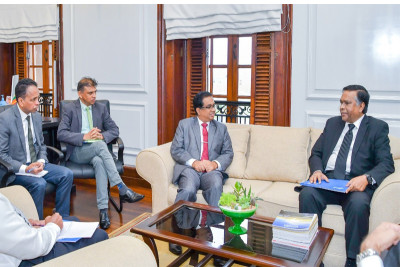Displaying items by tag: WFP assures continuous support to Sri Lanka
Tuesday, 15 October 2024 09:41
WFP assures continuous support to Sri Lanka
World Food Programme (WFP) representatives agreed to continue their on-going programmes in Sri Lanka through the World Food Programme, ensuring no disruptions, the President’s Media Division (PMD) said.
Published in
Development and Economic News
Tagged under


